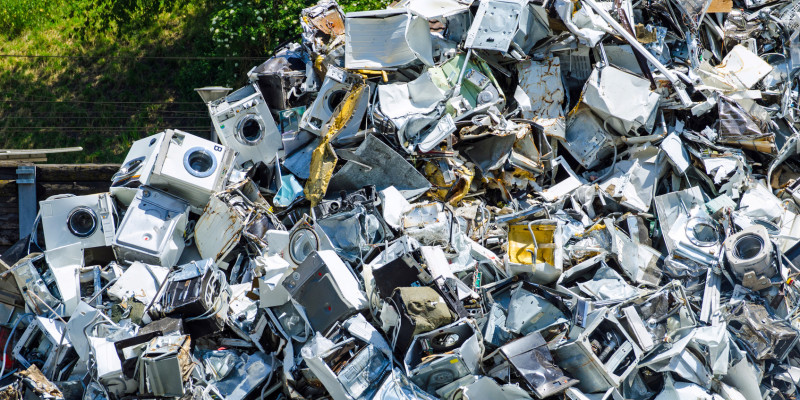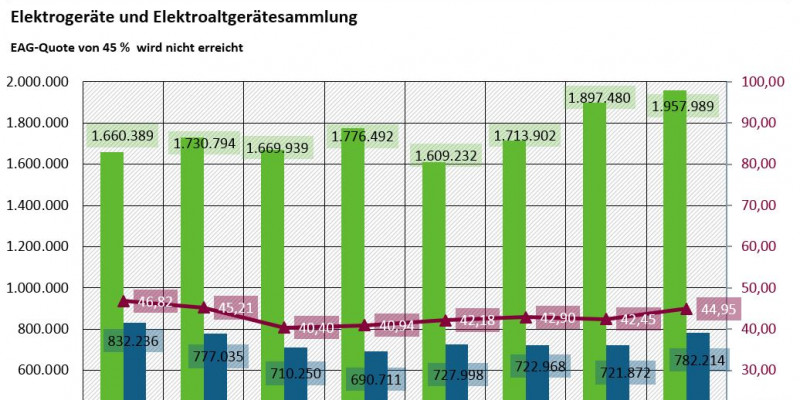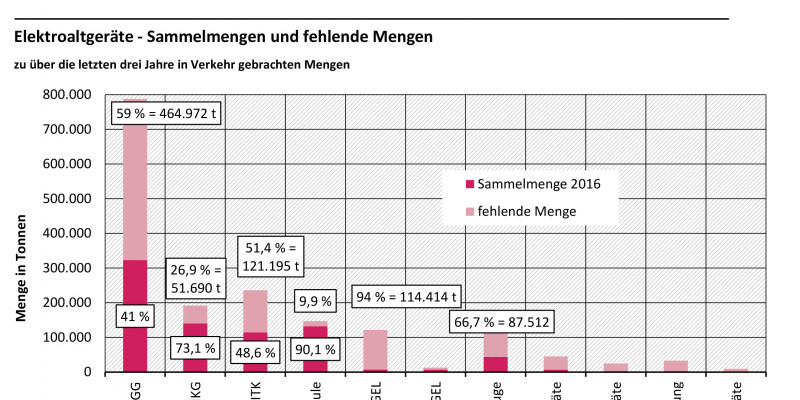A total of 782,214 tonnes of WEEE was recovered in 2016, which falls slightly short at 44.95% of the minimum collection target of 45 percent for equipment introduced to the market in the three previous years. The reason is that relatively few large household appliances are collected whereas they account for the greatest share of the waste in terms of weight. Only 41 percent of large household appliances were disposed of properly. Maria Krautzberger said: "Nearly 465,000 tonnes of refrigerators, washing machines and dishwashers disappear through illegal disposal channels or into non-certified processing plants. This is a pure waste of resources, not to mention the grave damage it does to the environment when hazardous substances are disposed of improperly or not at all."
There is little chance of an increase in the collection amounts or targets for 2017. In consideration of the minimum collection target of 65 percent which goes into effect in 2019, it is estimated that about 350,000 tonnes of WEEE are lacking to reach the collection target.
UBA has proposed four approaches to increasing the collection rate of WEEE:
- Easier take-back of WEEE: Take-back by merchants must be consumer-friendly. Collection stations must be easily accessible and have convenient opening hours. The pros and cons of the collection stations' bring and collect systems must be discussed.
- Consumers must be better informed about the necessity to separately collect WEEE and the options of its return – in several languages. Informational brochures and publicity campaigns are essential in this regard. More information is needed about the option to return goods to suppliers.
- Joint efforts are needed to ensure that statutory rules are observed in practice, e.g. in the export of WEEE.
- Appreciation of consumer goods must be strengthened, with the help of the Waste Prevention Programme, the National Programme on Sustainable Consumption, and more ecodesign to enhance product life cycle, reusability, reparability and recyclability.
According to a recent UBA survey, 77 percent of respondents have disposed of WEEE in the past three years. The equipment was either deposited at a collection station, disposed of when new equipment was delivered to replace it, or collected by municipal waste management professionals. Only one in every ten devices was returned to retail traders – apparently only half of all respondents ages 14-29 are aware of the possibility to return WEEE to suppliers. Finally, only around six out of every ten respondents felt well informed about where collection stations are located.
The motto of this year's European Week of Waste Prevention is " Harzardous Waste: Time to Detox ". Its aim is to urge people to reflect on their own consumption behaviour and to prolong the service life of products. Another aim is to illustrate how problematic waste requires special and separate disposal as it can otherwise be harmful to man and the environment. Several hundred actions throughout Germany will be showing how this is done from 17 to 25 November 2018.
 Click to enlarge
Click to enlarge






修改评论